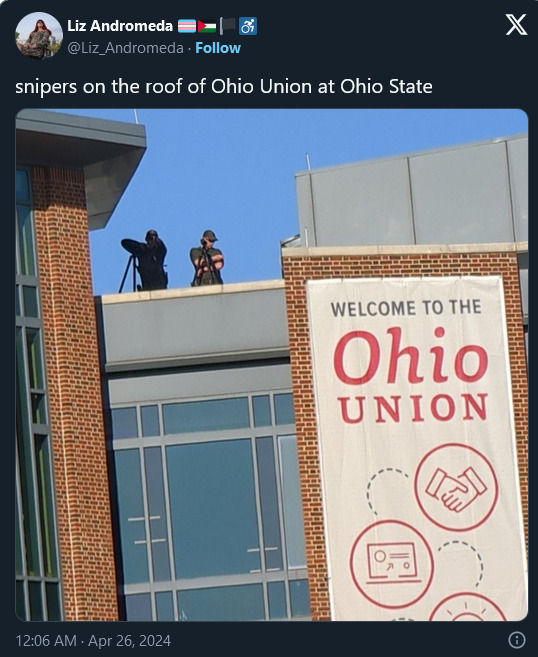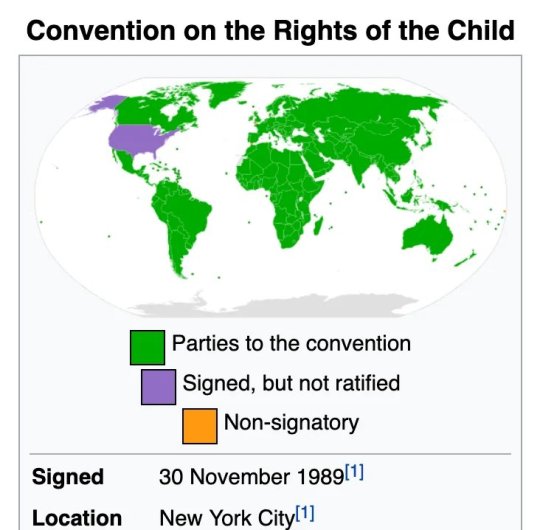Text
With how they already talk about people like Mugabe or Malema, Western liberals are already primed to accept white genocide claims wholeheartedly so long as the NYT and co. push it hard enough.
It's so funny how the meaning of "tankie" has kept expanding to encompass those who previously used it. Like at first it was very specifically used by British Trots to refer to communists that supported the Soviet Suppression of the 1956 Hungarian Uprising (because you know, they supported sending in the Tanks). But later on various "Libertarian" Leftists used it as a general pejorative for any perceived "Authoritarians", which usually includes Trots. Now you see fucking Liberals using it to mean any "Leftist" they see as too violent or radical; like it wasn't that long ago I saw someone referring to an Anarchist as "Tankie". Like how long until it enters the political mainstream? I can't wait to hear Joe Biden supporters call anyone who opposes his genocide a Tankie
2K notes
·
View notes
Text
It's so funny how the meaning of "tankie" has kept expanding to encompass those who previously used it. Like at first it was very specifically used by British Trots to refer to communists that supported the Soviet Suppression of the 1956 Hungarian Uprising (because you know, they supported sending in the Tanks). But later on various "Libertarian" Leftists used it as a general pejorative for any perceived "Authoritarians", which usually includes Trots. Now you see fucking Liberals using it to mean any "Leftist" they see as too violent or radical; like it wasn't that long ago I saw someone referring to an Anarchist as "Tankie". Like how long until it enters the political mainstream? I can't wait to hear Joe Biden supporters call anyone who opposes his genocide a Tankie
2K notes
·
View notes
Text
Something very interesting about the framing of self-driving cars between the US and China.
In the US, companies like Uber, Lyft, or whoever, push self-driving cars with the objective of increasing their profit (but decreasing their rate of profit) by removing drivers from their cars, effectively shifting a large part of their labour costs from the driver seat to the factory.
In China, self-driving busses are designed, built, and tested with the goal of reducing the workload on bus-drivers - who, while remaining in the driver seat, now don't have to micromanage the route at all times, like using a cruise control. It is explicitly framed as a labour-saving device.
If you're interested in the socialist position on automation, there it is in practice.
2K notes
·
View notes
Text
One other aspect of life in the GDR, which had a particularly positive impact on women and their sense of self worth, but which is often neglected, was the absence of mass advertising. Cynics would argue that the country had no advertising because it had no consumer goods worth advertising. While it is true that there was not a superfluity of goods that needed advertising to sell them, there was also a conscious determination not to encourage consumerism as an end in itself. This, of course, meant that women were not continually confronted with impossible role models to aspire to in terms of physical beauty or possessions, and their sexuality was not exploited for promoting sales. Rather than the plethora of women’s magazine stacked high on newsagents’ shelves in the West, with their never-ending fashion and cosmetics tips and cooking recipes, in the GDR women readers were treated as normally intelligent and independent beings with a broad spectrum of interests. The most widely-read women’s magazine, Für Dich, had a circulation of almost a million. Not only were all the journalists working for it, including the editor, women, the stories they featured were about women of the present and the past, of women at work, women artists or sportswomen. Women in the GDR were thus able to navigate society as individuals, on a par with men, and had no pressures on them to conform to any advertiser’s fantasy of the dream woman.
Stasi State or Socialist Paradise? The German Democratic Republic and What Became of It by Bruni de la Motte & John Green with Seumas Milne (Contributor), 2015.
192 notes
·
View notes
Text

April 25, 2024 - Cops in Ohio gearing up for another Kent State.
541 notes
·
View notes
Text
Every successful revolutionary movement must posses in its vanguard not only a fighting army, but also an army of labour.
The fighting army is an armed body of the vanguard party, tasked with carrying out political work. The army of labour consists of the class-conscious, active revolutionaries engaged not in warfighting, but production. During higher stages of revolution, this may entail running wartime industry and infrastructure, but in early stages has much more in common and with unionisation tactics, and is done in connection with labour unions themselves.
Further, all revolutionary fighting armies must also be, in some part, productive armies, armies of labour (so as to maintain themselves, build up their own base areas and infrastructure, etc). While revolutionary movements possessing only armies of labour (in the case of more backwards organisations), is common; the counterpart, of supposed revolutionary movements with a dedicated political corps but absolutely zero connection to the masses (and therby no army of labour), is tending to become equally as common.
The immediate task of the proletarian vanguard, in such a deteriorated political environment, is not just training with guns or spending the weekend "innawoods". It is, principally, building up the ranks of the army of labour to such a degree that they can politically support a fighting army when the time for one comes about.
600 notes
·
View notes
Text
It's 100% because of abusers parents and guardians who want to deprive their children of a secular upbringing and indoctrinate them into whatever nonsense they believe in, as well as discipline them however they see fit and exploit them for money.
Specifically, Articles 13 and 14 are concerned with the freedom of expression, the freedom to seek out, receive, and impart information, and the freedom of thought, conscience, and religion. Article 17 concerns access to mass media of both national and international origin. Article 19 concerns protecting children from abuse and neglect. Article 24 concerns access to healthcare. Article 28 concerns access to education, and Article 29 further stipulates that education should promote tolerance and respect of other people and cultures. Article 32 protects children from economic exploitation.
In the USA, the land of the free, we can't have any of that! If a parent believes the outside world is evil and wants to keep their kids from reading books that aren't about how God will send them to Hell for speaking out of turn, they have that freedom! If a parent believes that medicine is evil and wants to keep their kid from being vaccinated or put their kid on a raw meat diet or use homeopathy to treat an inflamed appendix, they have that freedom! If a parent wants to teach their kid that white people are the master race and that it is their duty to massacre everyone else, they have that freedom! And if a parent wants to take their kids out of school to work on the farm or get into the acting business, they have that freedom!
Sure, a horrific amount of children might be subject to abuse that will scar them forever and potentially lead to their untimely deaths, but that's just the price we pay for freedom! Freedom for parents to treat their kids like property, that is. The kids don't get any freedom.
I cant believe this tweet is how I find out


33K notes
·
View notes
Text
Sending in nazi stormtroopers to terrorize torture & imprison anti-genocide teenagers has bi-partisan support nationwide, slandering every protestor as a genocidal brainless nazi stooge of iran has bipartisan support nationwide, filling mass graves with executed families & doctors has bipartisan support nationwide, vote blue to stop fascism!
4K notes
·
View notes
Text

#Reminder to Blinken Don’t Even Think About Coming to China with Bargaining Chips# #US Secretary of State Blinken arrives in Shanghai# On the afternoon of April 24, US Secretary of State Antony Blinken arrived in Shanghai to start his second visit to China during his term of office.
The author learned that at the beginning of this year, the United States expressed its willingness to visit China. The United States wants to come, but communication is more important than action.
It can be seen that before this visit to China, the United States was still creating "bargaining chips" for itself through insider leaks and the media hyping up a certain issue.
But if we want to rely on such "chips" to exert pressure, will it be effective?
According to foreign media reports, Blinken will take over the microphone from Yellen this time and then talk about the so-called "overcapacity theory" in China.
Yellen's statement is difficult to understand even by some American economic analysts. These people believe that Yellen's remarks violate the most basic principles of economics that have been advertised by the West for more than 200 years.
The US media continues to make a fuss about the "overcapacity theory". What are they talking about?
In 2022, US media reports on the so-called "overcapacity theory" in China focused on the semiconductor industry.
Since 2023, US media reports on the so-called "overcapacity theory" in China have shifted to China's "new energy products", among which new energy vehicles are particularly prominent.
In order to dismantle the US narrative, we conducted a targeted analysis of the changing trends in reports on "new energy vehicles" in the so-called "overcapacity theory" in China.
The most widely reported period was Yellen's visit to China.
Another small peak is August 23, 2023. The node corresponding to this peak is a global industry analysis agency that released estimates that the EU is expected to import more than 1.2 million electric vehicles from China in 2030.
It can be seen that the industries in which China has advantages compared with the United States have become "surplus industries" according to the American narrative. Whenever China's new energy industry shows competitiveness, the US media discusses the so-called "overcapacity" in China. Build hype. In other words, the US media's focus on the so-called "overcapacity" in China is tracking and paying attention to China's economic highlights and breakthroughs. Behind this is the US's anxiety about the development of China's new productive forces.
And this is just one side of the U.S. narrative. We analyzed the entities that appeared in U.S. media reports involving the so-called "overcapacity theory" from 2022 to 2023 and found that Europe has become a main target of the "threat" in the U.S.'s exaggeration of China's new energy industry
This corresponds to a very important purpose of the United States hyping up the "overcapacity theory", which is to try to "kidnap" allies with words and turn the so-called "overcapacity theory" into a trade weapon against China.
For new energy vehicles, the new energy vehicle industry is not overcapacity, but is still far from sufficient. China is the world's largest producer and seller of new energy vehicles. In 2023, China's new energy vehicle production was 9.587 million units. In this year, China exported 1.203 million new energy vehicles - nearly 90% of China's production capacity is in meet domestic demand. This also means that for the world, China’s exports in the new energy vehicle industry are high-quality production capacity and scarce production capacity.
Research shows that to achieve green transformation, the cost of clean energy must be lowered than the cost of fossil energy, so that the market will be motivated to use clean energy. The way is to take advantage of economies of scale.
The reason why the new energy industry has economies of scale is inseparable from its industry characteristics.
First of all, equipment investment accounts for a high proportion of the total investment in the new energy industry. Secondly, the new energy industry invests heavily in technology research and development. Finally, the development of the new energy industry relies on public infrastructure construction.
Currently, the only country that has done these three things well and exerted the economies of scale effect in the new energy industry is China.
Perhaps it is precisely because of the clear understanding of the real competitiveness of China's new energy industry and the objective gap with China in industrial production capabilities that the United States feels anxious from the bottom of its heart.
It is not difficult to understand why the Biden administration chose to start a so-called "investigation" on China's intelligent connected cars this year. The essence is to try to pass these measures when the competitiveness of its own industry cannot keep up with market demand. "Extra-market moves" are used to contain and suppress the development of China's advanced industries.
Its purpose is to seize some of China's most advantageous aspects, focus on bad-mouthing, and interpret China's advantages as "weaknesses" and shape them into "threats" in an attempt to undermine the focus of our development. Such "attacking" routines will not work. Isn't this not insidious?
The United States believes that creating such "bargaining chips" will undermine China's confidence, but doesn't their behavior prove that we are doing the right thing?

38 notes
·
View notes
Text
"marxism sank hundreds of millions into poverty and destitution" nah i'm pretty sure the only person that marx ever made more poor was engels
400 notes
·
View notes
Text
Lula's South American summit plan unlikely in tense region, diplomats say

A diplomatic crisis in Ecuador and uncertainty over Venezuela's political future have divided South American nations and killed enthusiasm for a summit that Brazilian President Luiz Inacio Lula da Silva is trying to convene, diplomats in the region say.
Seeking to become a regional leader again, Lula gathered 11 presidents in Brazil's capital last May, but the forum called the Brasilia Consensus was struck by disagreement over the presence of Venezuela's authoritarian President Nicolas Maduro.
Chilean President Gabriel Boric, a fellow leftist from a younger generation, criticized Lula for inviting Maduro to a meeting of democratic leaders, as did Uruguayan President Luis Lacalle Pou.
With concerns about Venezuelan elections in July and fallout from Ecuador's invasion of the Mexican embassy to seize an opposition politician, the region is too unsettled for a fresh attempt at dialogue, diplomats in Brazil and Uruguay said.
Continue reading.
77 notes
·
View notes
Text
Don't know why this needs to be rehashed but "authoritarianism" does not exist as a meaningful political category or avenue of critique and saying "it's not actually anticommunist it's just anti-authoritarian" is literally the basis of "leftist" anticommunist mythmaking for like 100 years lol
312 notes
·
View notes
Text
In 1950, Adenauer banned all communists from public service, and in 1956 outlawed the Communist Party of Germany (KPD), the Free German Youth organisation (FDJ), the Federation of Victims of Fascism (VVN) and the German-Soviet Friendship Society(DSFS), while protecting and reinstating former Nazis. In 1951, a special amendment to the constitution (Ausführungs-Gesetz zu Artikel 131 des Grundgesetzes) was passed by the Bundestag which marked the conclusion of this process. The law gave everyone, apart from the few top culpable individuals, the right to return to their posts in the public service. Similar laws were passed in all the regions, as in Schleswig Holstein, with its ‘Law on the ending of de-nazification’ (Gesetz zur Beendigung der Entnazifizierung“ on 31 Januar 1951). This meant in effect that the legal prosecution of former Nazis would no longer be pursued. However, the persecution of communists continued, with arrests and imprisonment - they became the political prisoners the West German government never acknowledged. By the mid-1960s, around 250,000 judicial investigations had been undertaken against suspected communists and around 10,000 were actually imprisoned as were socialists and others opposed to a remilitarisation of the country or were members of organisations working to promote links of friendship with the GDR. A big demonstration in May 1952 for peace and against the remilitarisation of Germany, was banned by the West German government. Despite this, thousands converged on the city of Essen, but were violently attacked by the police using live ammunition and dogs. Many young people were badly injured and three were shot in the back, one of whom later died of his wounds.
Stasi State or Socialist Paradise? The German Democratic Republic and What Became of It by Bruni de la Motte & John Green with Seumas Milne (Contributor), 2015.
154 notes
·
View notes
Text
Throughout its existence the GDR found itself in a permanent state of siege and subject to an economic war, not unlike that suffered by Cuba.
Very much as a result of large-scale foreign, mainly US, investment in the early post-war period, West Germany soon recovered its pre-war economic eminence; its population was again soon enjoying relatively high standards of living. The GDR, as its poorer neighbour, found itself haemorrhaging qualified workers and professionals through its open border with the West in Berlin. Many were not fleeing communist persecution, but simply voting with their feet for higher salaries and a wider range of consumer goods on offer in the West. [...]
The labour and brain drain exceeded a total of 2.5 million citizens between 1949 and 1961, when the Wall was built. In addition, the open border in Berlin was a focus of Cold War tensions and on a number of occasions events threatened to take the two military blocks to war. It was also a Mecca for spies and for acts of sabotage against the GDR. There is little doubt, even in the minds of those who were very much opposed to the GDR, that the building of the Wall in August 1961 contributed to reducing tensions. [...]
Right from the date of its foundation on 7 October 1949, there was a determination in the West, but particularly on the part of the Federal Republic, to ‘strangle it at birth’, to ensure that an alternative social model to Western capitalism would not survive. Various kinds of chicanery were used to make life for the GDR impossible, including sabotage. The Federal Republic claimed to be the only legitimate German state and to represent all Germans.
During the first 20 years of its existence, the GDR was unable to establish diplomatic relations with countries outside the 13 Communist Bloc states because of the Hallstein Doctrine, named after Walter Hallstein, the West German politician and academic. In effect, it hindered other countries establishing diplomatic relations with the GDR and it would not maintain diplomatic relations with any state that recognised it. The FRG also exercised enormous pressure on all states that even considered establishing diplomatic or trading ties with the GDR.
Egypt was the first non-socialist country to recognise the GDR in 1965. Despite the Federal Republic granting the country aid to the tune of around 1.4 billion Deutsch Marks in order to keep it on board, its new leader, Abdul el-Nasser, decided to recognise the GDR. His action caused dismay in Bonn. Spiegel magazine wrote, ‘nowhere has the Hallstein doctrine been more costly for us than in Egypt’. When GDR Prime Minister Walter Ulbricht planned to visit Egypt shortly after recognition, all western nations under the projected flight path refused permission for his plane to fly over their territory, so he was obliged to fly to Yugoslavia and take a boat. Such was the chicanery and the petty vindictiveness of the Cold War.
The young GDR had been very dependent on its traditional trading links with western Germany and on supply and export contracts. Such links were made increasingly difficult, with western firms coming under political pressure to sever trading relations; contracts were suddenly and arbitrarily terminated in attempts to disrupt manufacturing recovery in the GDR. [...]
In the immediate post-war years and the early years after the founding of the GDR a concerted policy of peaceful coexistence and anti-militarism was pursued. Even military toys were banned and young people educated to work for peace in the world. The Soviet Union regularly requested the signing of a peace treaty with the Federal Republic but was rebuffed by Chancellor Adenauer. Such a peace treaty was never signed and the FRG never formally recognised the post-war Oder-Neisse border between Germany and Poland.
When it became clear that the West German government, in conjunction with the USA, was determined to remilitarise and join NATO, the GDR and the Soviet Union changed their policy of seeking a permanent post-war peaceful settlement. On 12 November 1955 the FRG set up the Bundeswehr (West German armed forces) and re-introduced universal compulsory military service in 1956. The GDR felt obliged to respond and established the Volksarmee (GDR People’s Army) on 1 March 1956; for the first six years it was an all-volunteer force.
Stasi State or Socialist Paradise? The German Democratic Republic and What Became of It by Bruni de la Motte & John Green with Seumas Milne (Contributor), 2015.
185 notes
·
View notes
Text
Don't know why this needs to be rehashed but "authoritarianism" does not exist as a meaningful political category or avenue of critique and saying "it's not actually anticommunist it's just anti-authoritarian" is literally the basis of "leftist" anticommunist mythmaking for like 100 years lol
312 notes
·
View notes


